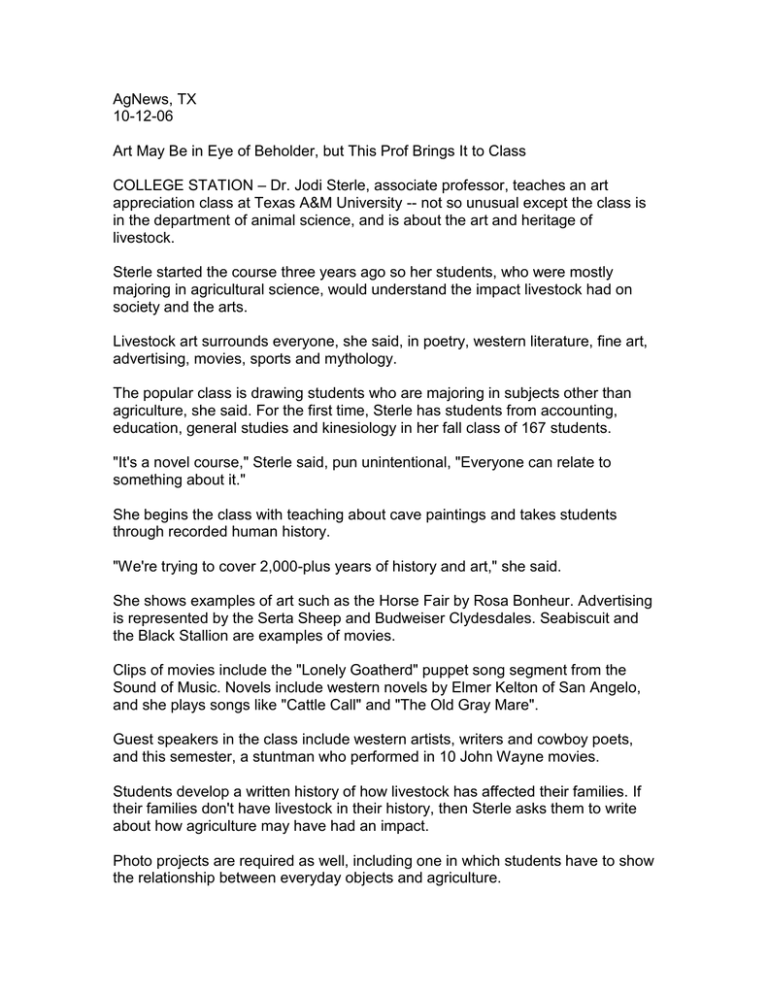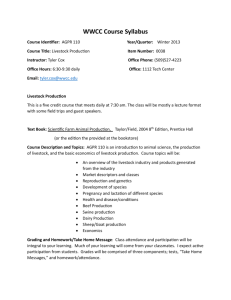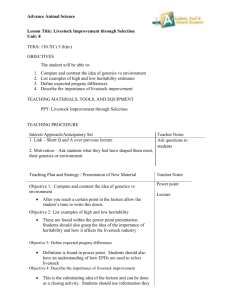AgNews, TX 10-12-06
advertisement

AgNews, TX 10-12-06 Art May Be in Eye of Beholder, but This Prof Brings It to Class COLLEGE STATION – Dr. Jodi Sterle, associate professor, teaches an art appreciation class at Texas A&M University -- not so unusual except the class is in the department of animal science, and is about the art and heritage of livestock. Sterle started the course three years ago so her students, who were mostly majoring in agricultural science, would understand the impact livestock had on society and the arts. Livestock art surrounds everyone, she said, in poetry, western literature, fine art, advertising, movies, sports and mythology. The popular class is drawing students who are majoring in subjects other than agriculture, she said. For the first time, Sterle has students from accounting, education, general studies and kinesiology in her fall class of 167 students. "It's a novel course," Sterle said, pun unintentional, "Everyone can relate to something about it." She begins the class with teaching about cave paintings and takes students through recorded human history. "We're trying to cover 2,000-plus years of history and art," she said. She shows examples of art such as the Horse Fair by Rosa Bonheur. Advertising is represented by the Serta Sheep and Budweiser Clydesdales. Seabiscuit and the Black Stallion are examples of movies. Clips of movies include the "Lonely Goatherd" puppet song segment from the Sound of Music. Novels include western novels by Elmer Kelton of San Angelo, and she plays songs like "Cattle Call" and "The Old Gray Mare". Guest speakers in the class include western artists, writers and cowboy poets, and this semester, a stuntman who performed in 10 John Wayne movies. Students develop a written history of how livestock has affected their families. If their families don't have livestock in their history, then Sterle asks them to write about how agriculture may have had an impact. Photo projects are required as well, including one in which students have to show the relationship between everyday objects and agriculture. This is the only course like this presently taught in the U.S., Sterle said, although Dr. Richard Willham, now retired, pioneered a similar course at Iowa State University that is no longer taught. When Sterle became interested in teaching the course, she contacted Willham, who sent her class notes and slides of artwork that are irreplaceable, she said. Several other universities have become interested in having a course like this and have contacted Sterle to ask her to write a textbook, she said.





